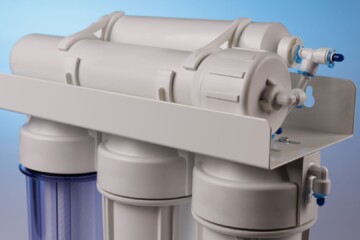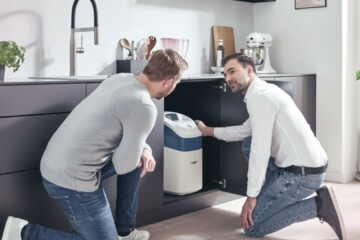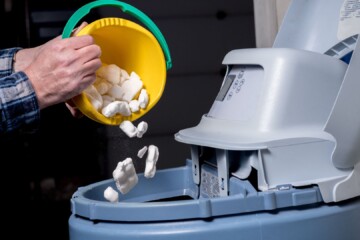Water softeners help conserve water by reducing the minerals that cause hardness, resulting in more efficient water usage. Softened water requires less soap and detergent, leading to water savings with smaller amounts needed for cleaning. The decreased mineral content in soft water also helps extend the lifespan of plumbing fixtures by preventing stains and limescale buildup. Some systems can save up to 75 gallons of water per day per household, making them a great choice for those conscious of water consumption. Understanding how water softeners work can assist in making informed decisions for managing water in your home.
Contact CAN Plumbing and Drainage for all your Water Softener Needs
For top-notch water softeners and expert guidance, contact CAN Plumbing and Drainage in Mississauga – your comprehensive solution provider. Our top Mississauga plumbers specializes in installing water softeners to boost water flow, cut down on water expenses, and enhance overall plumbing and drainage efficiency. With a water softener in place, you can significantly reduce water usage by preventing mineral buildup in your pipes and appliances. This not only helps conserve water but also prolongs the life of your plumbing system. At CAN Plumbing and Drainage in Mississauga, we understand the significance of water conservation and are dedicated to offering you the finest water softener solutions. Rely on us to optimize your water usage and save you money on water bills.
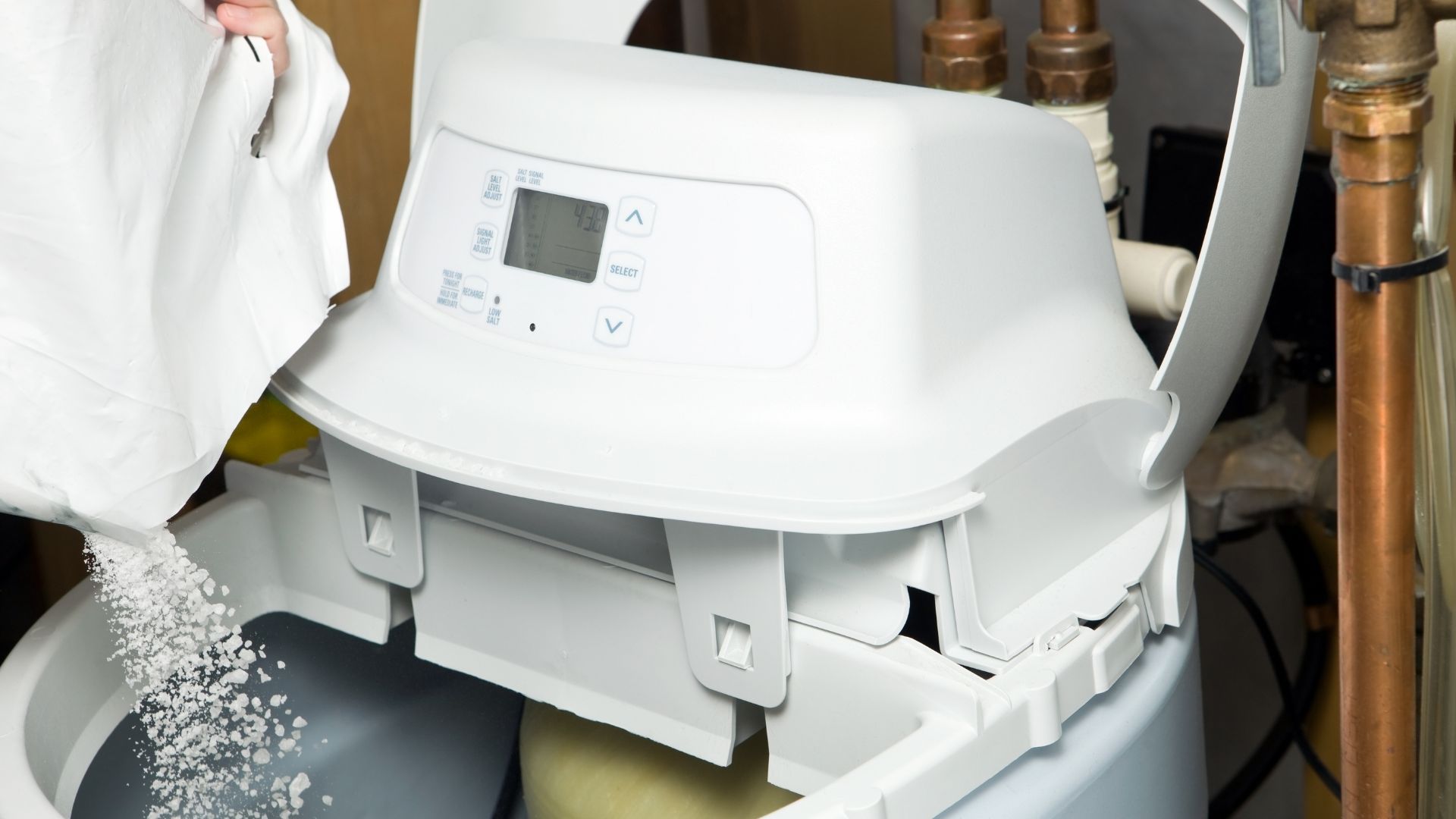
CAN Plumbing and Drainange Services Related to Water Softeners
At CAN Plumbing and Drainage in Mississauga, our team specializes in the installation, replacement, and repair of water softeners. With our expertise, we ensure efficient operation and high water quality for your needs. Contact us today for professional services tailored to your water softening requirements.
Water Softener Installations
Proper installation of water softeners by certified plumbing and drainage services is crucial for optimal performance and longevity. When it comes to water softener installations, ensuring the unit is accurately sized and connected to the water supply is essential. A whole-house water softener can effectively enhance water quality by reducing minerals that cause hardness. By entrusting the installation to a local water expert, you can rest assured that the system is configured to conserve water efficiently. Professional installation not only minimizes the risk of leaks but also guarantees that the water softener functions at its peak. Relying on trained professionals for water softener installations is a smart investment in maintaining both water quality and the system’s durability.
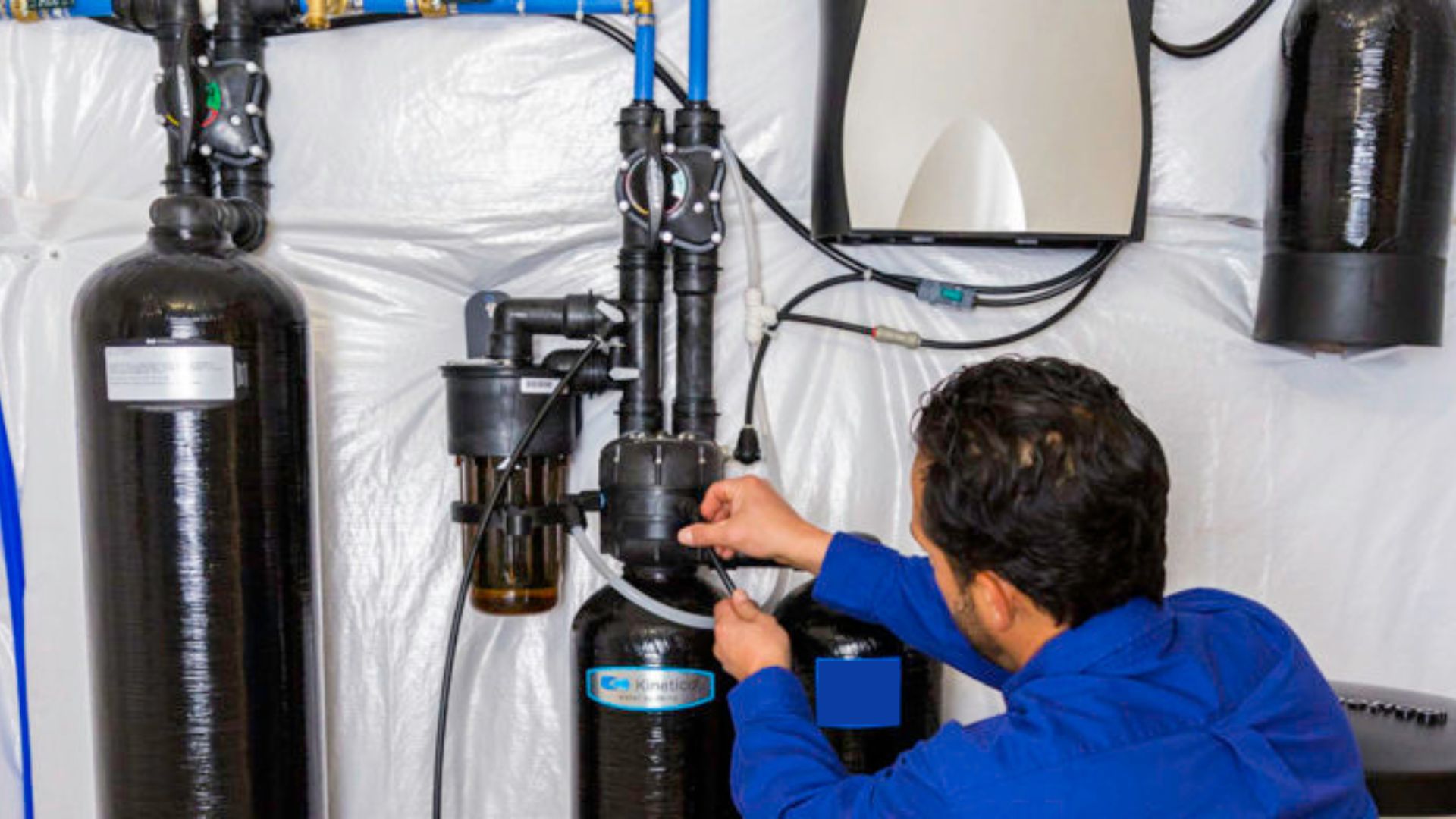
Water Softener Replacements
For optimal performance and durability, it is advisable to have certified plumbing and drainage services handle the replacement of water softeners. Replacing water softeners is crucial to ensure that your system continues to function effectively, delivering high-quality softened water. Over time, the resin beads in the water softening system may deteriorate, diminishing the softening efficiency. By timely replacing your water softener, you can maintain the advantages of a water softener, such as preventing scale buildup in pipes and appliances. Regular replacements also aid in optimizing the regeneration process of the water softener, ensuring it operates efficiently to consistently provide softened water.
Water Softener Repairs
When it comes to addressing water softener repairs, our certified plumbing and drainage services ensure efficient and reliable solutions to maintain peak system performance. Regular maintenance is essential to prevent issues with the resin tank and ensure proper regeneration of resin beads. If you notice a decline in water softening efficiency, it may be time to check and replenish the water softener salt levels. Our experienced team can diagnose and resolve problems with various water softener models, including Culligan water softeners, promptly and effectively. Trust us to handle your water softener repairs, keeping your system running smoothly and your water quality at its best.
Decreased Soap and Detergent Usage
Our water softening system has led to a noticeable reduction in the amount of soap and detergent we require for daily household tasks. Due to the decreased water hardness resulting from the use of water softeners, soap and detergent can lather more easily and effectively. This means that we can achieve the same level of cleanliness using less soap and detergent than before. With softer water, the soap molecules can interact more readily with the water, allowing for better cleaning action with smaller amounts of cleaning agents. As a result, our household has experienced a significant decrease in soap and detergent usage, leading to cost savings and reduced environmental impact through less chemical runoff into water systems.
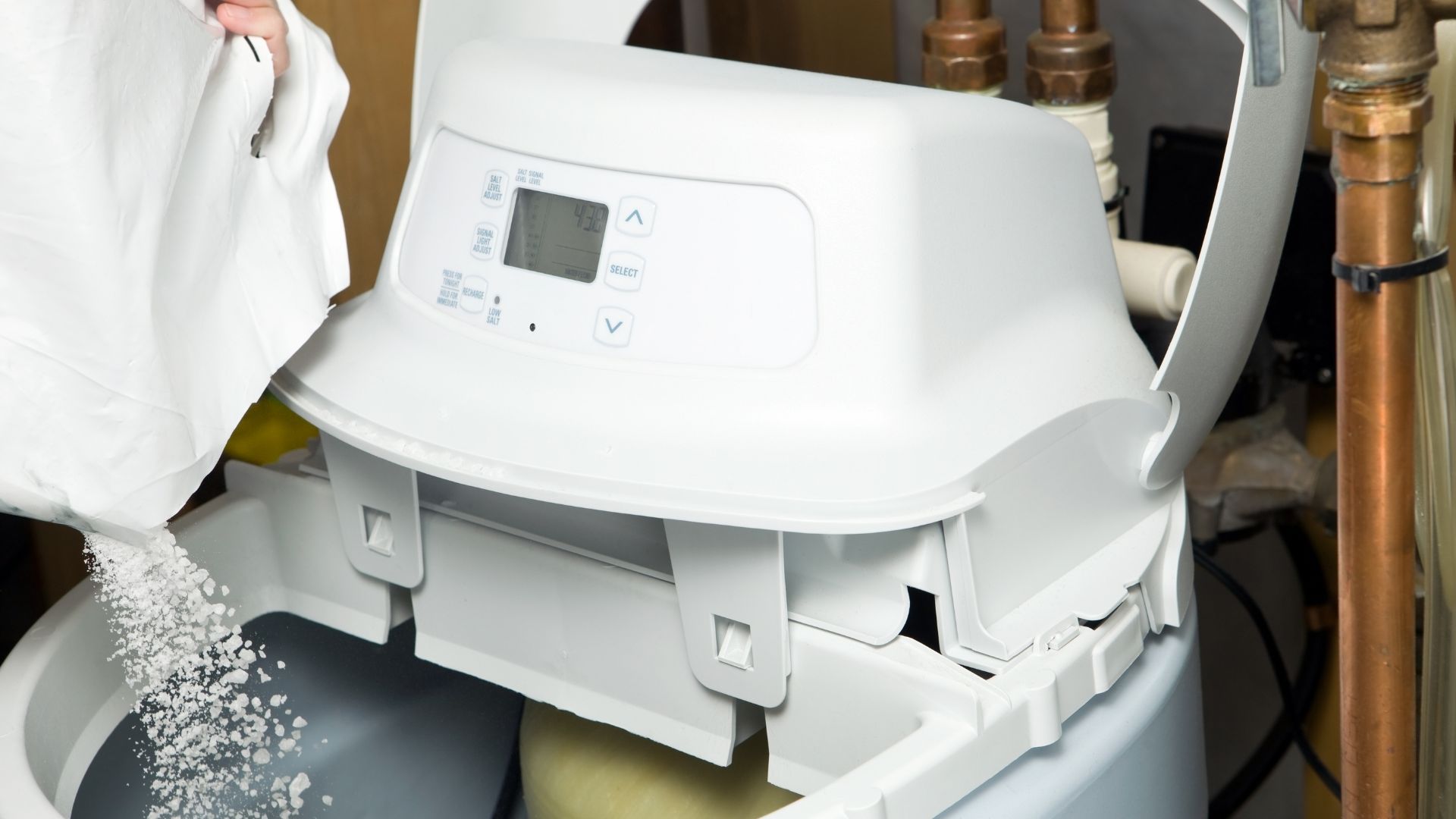
Extended Lifespan of Plumbing Fixtures
The utilization of water softeners has been observed to reduce the damaging effects of hard water on plumbing fixtures, thereby extending their lifespan. Hard water, containing high mineral content such as calcium and magnesium, can lead to the formation of stains, mineral deposits, and limescale buildup on fixtures over time. These deposits not only impact the appearance of fixtures but also hinder their functionality. By decreasing the mineral content in the water, water softeners effectively reduce the accumulation of these deposits. This, in turn, prolongs the lifespan of plumbing fixtures and ensures their efficient operation for an extended period.
Less Water Wastage in Cleaning Process
Utilizing water softeners can significantly reduce water wastage during the cleaning process. Water softening helps minimize the need for cleaning products and the water required to rinse them off effectively. When hard water is used with cleaning agents, it often results in soap scum buildup on surfaces, necessitating more water to remove the residue. However, a water filtration system that provides softer water makes cleaning more efficient, requiring less water for rinsing. This not only saves water but also reduces the necessity for excessive cleaning products. By addressing water issues at the source through water softening, the cleaning process becomes more sustainable and environmentally friendly, benefiting both households and the broader ecosystem.
Reduced Water Usage in Appliances
Water-efficient appliances play a crucial role in reducing water usage in households and businesses. Pairing these appliances with a water softener can further enhance water conservation efforts. A water softener helps reduce water usage by enabling appliances to operate more efficiently with soft water. Dishwashers, washing machines, and water heaters benefit from using soft water, leading to decreased water consumption in daily tasks. High-quality water from water softeners also helps extend the lifespan of appliances by preventing mineral buildup. By integrating water softeners into filtration systems for appliances, households and businesses can make significant contributions to water conservation efforts while enjoying the advantages of reduced water usage.
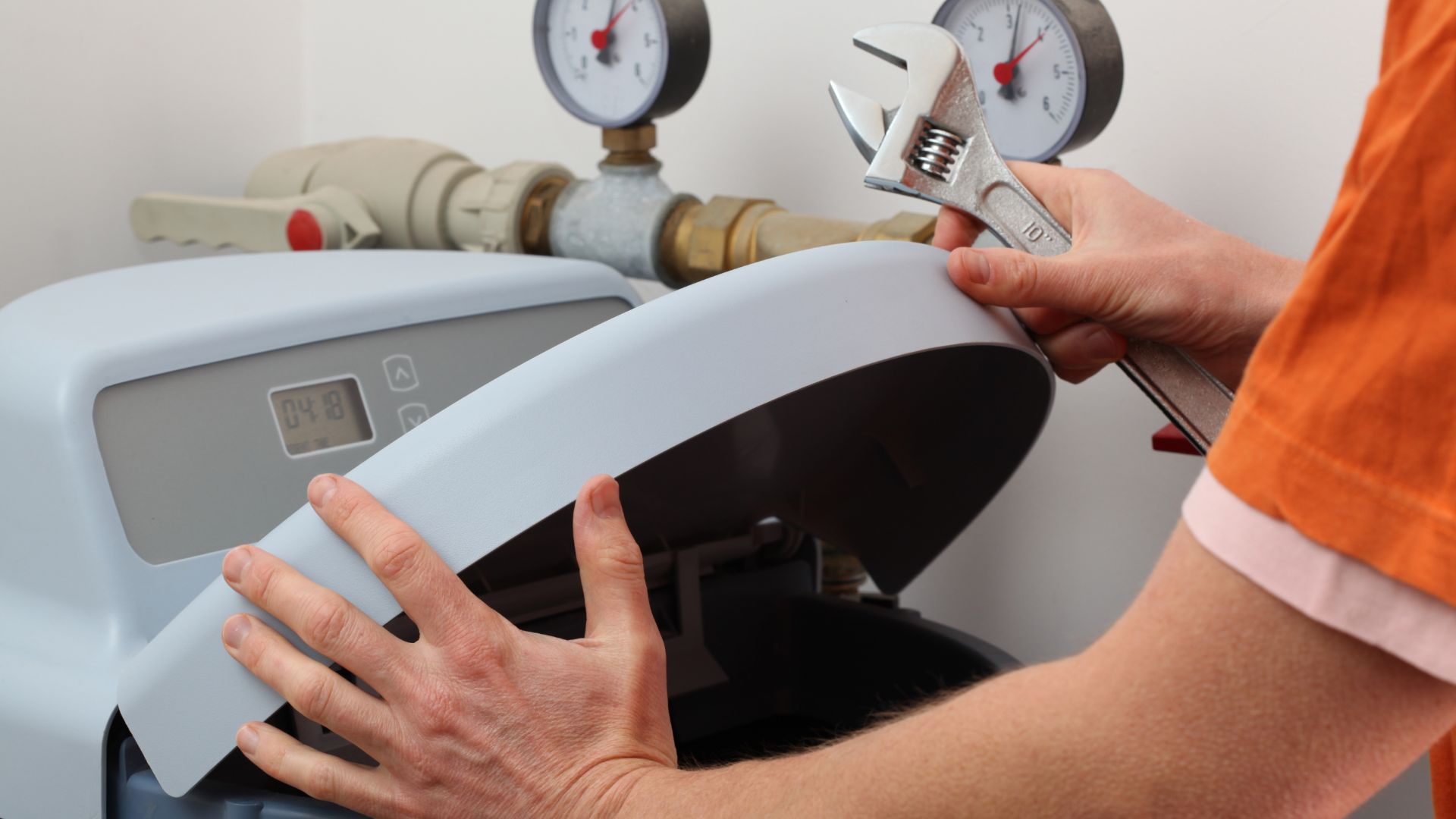
Shorter Shower and Bath Times
Optimize water usage by reducing shower and bath times to conserve resources effectively. Shortening showers and baths can help minimize water consumption, especially in regions with hard water. Hard water can leave tough stains on faucets and tiles, making cleaning more difficult. With shorter shower times, less water is used, reducing the occurrence of hard water stains. Using water softeners can also help create a rich lather with soap, allowing for better cleansing in a shorter time. Additionally, shorter showers can benefit your skin by preventing it from drying out due to prolonged exposure to water and harsh minerals. By decreasing shower and bath durations, you can save water and reduce energy consumption from water heating.
Frequently Asked Questions About Water Softeners Near Me
Are There Any Potential Drawbacks to Using a Water Softener?
Using a water softener can have potential drawbacks, including the increase in sodium levels in water, possible environmental impact from brine discharge, and the need for consistent maintenance and monitoring to ensure optimal performance and efficiency.
How Often Should a Water Softener Be Serviced or Maintained?
Regular maintenance of our water softener is recommended every six to twelve months to ensure optimal performance and extend its lifespan. This routine service includes tasks such as refilling salt, inspecting for leaks, and cleaning components to maintain efficiency.
Can a Water Softener Be Installed in Any Type of Home or Building?
Water softeners are versatile and can be installed in a wide range of homes or buildings. They are compatible with various plumbing systems and sizes, making them adaptable to different setups. It is important to have professionals handle the installation to ensure proper functionality and efficiency.
How Does a Water Softener Affect the Taste of Drinking Water?
Installing a water softener can enhance the taste of drinking water by eliminating minerals that contribute to a bitter or metallic flavor. It helps to improve the purity and clarity of water, resulting in a refreshing and satisfying drinking experience.
Are There Any Environmental Benefits to Using a Water Softener?
Using a water softener can offer environmental benefits such as reducing the need for harsh cleaning chemicals, saving energy by improving appliance efficiency, and minimizing water wastage. Overall, it can contribute to a more sustainable household.
Please rate our website
Let us improve this post!
Tell us how we can improve this post?
